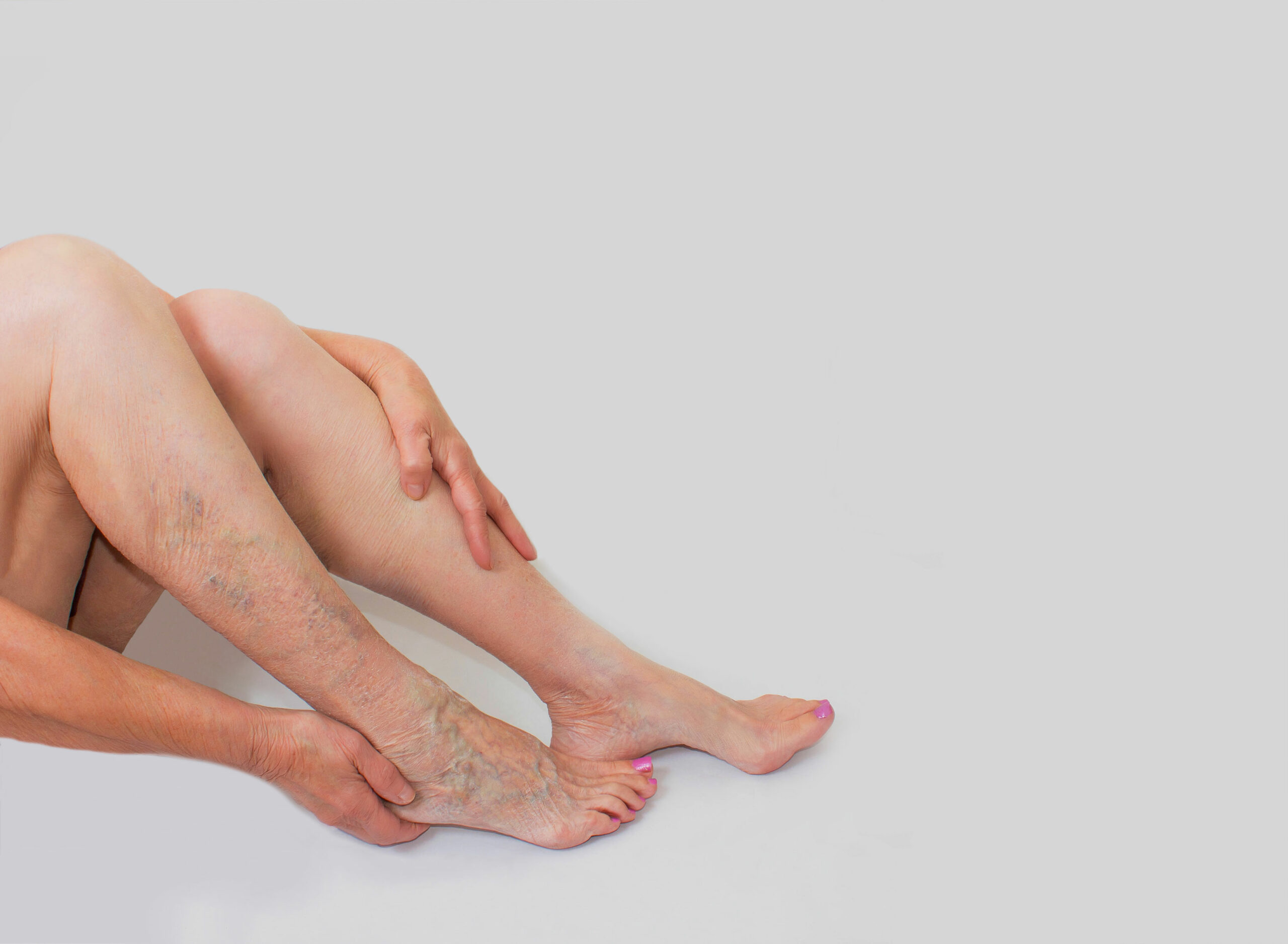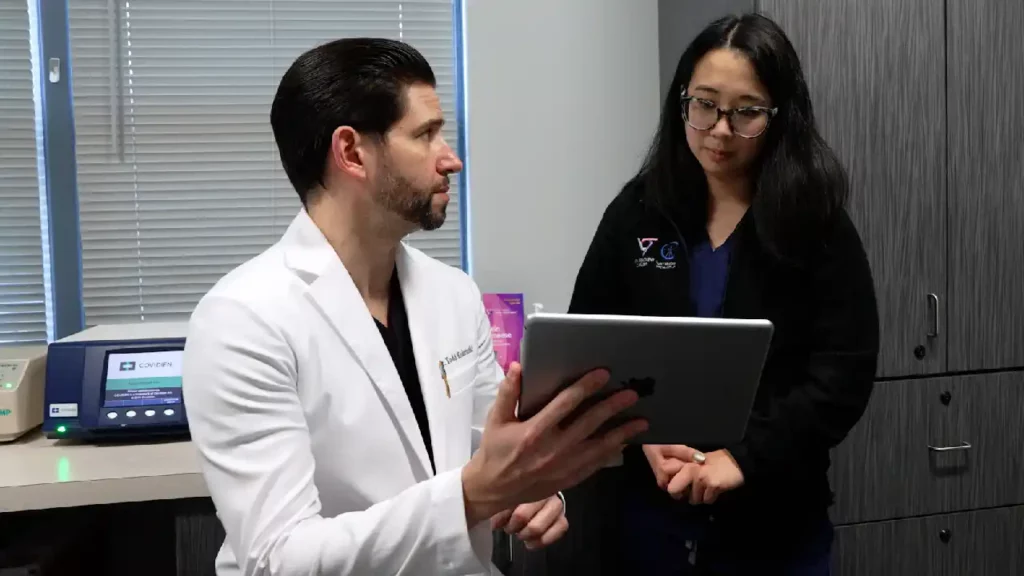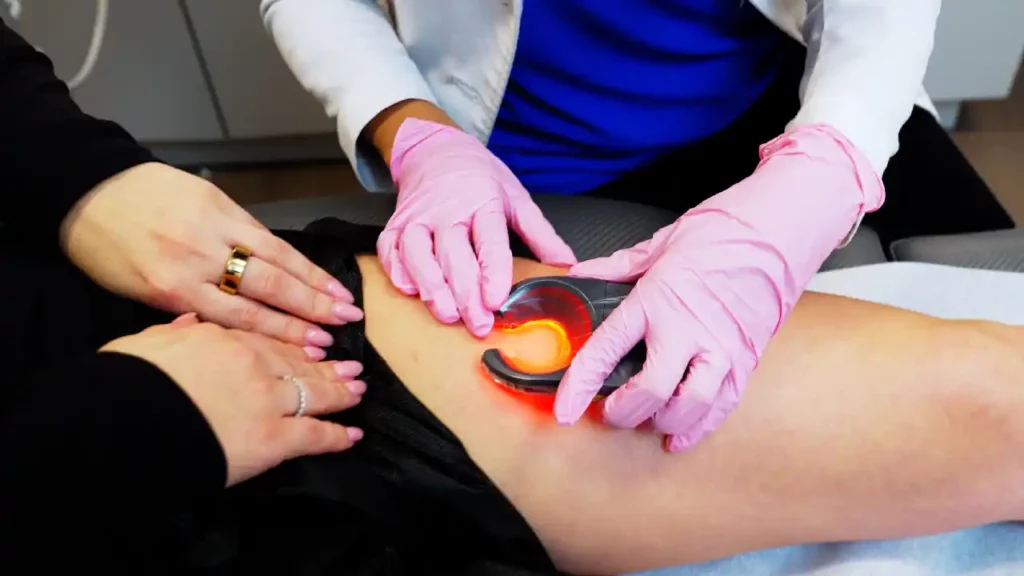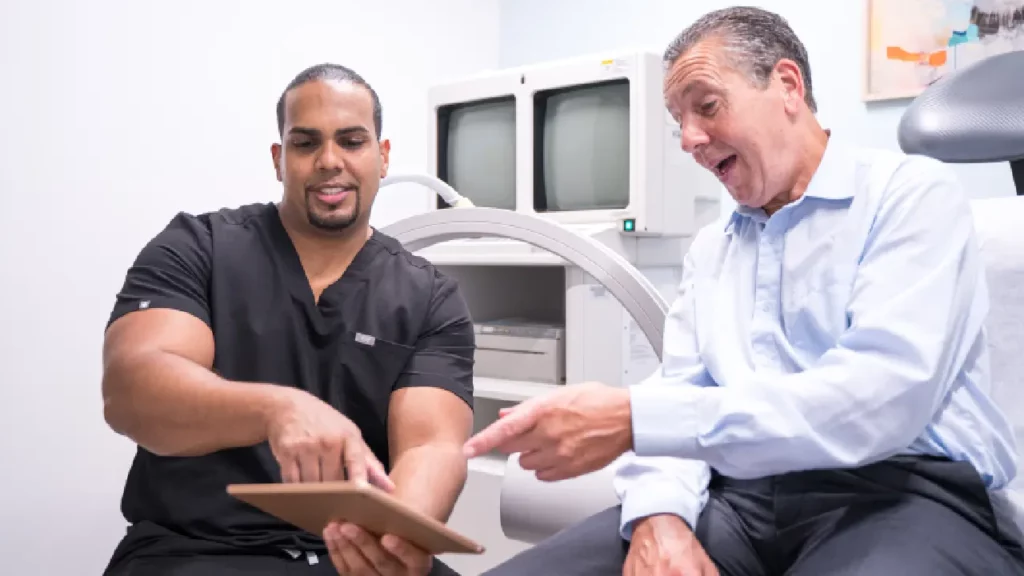WHAT IS THE BEST TREATMENT FOR VARICOSE VEINS?
EFFECTIVE TREATMENTS FOR VARICOSE VEINS

There is no such thing as a catch-all ‘most effective treatment method’ for varicose veins; the treatment plan for varicose veins depends on the patient’s outcome goal, the severity of the disease, and the patient’s general health.
Table of Contents
- Effective Treatments For Varicose Veins
- Best Treatments For Varicose Veins
- How Can I Get Rid Of Varicose Veins Permanently?
- What Is The Latest Treatment Available For Varicose Veins?
- How Can I Get Rid Of Varicose Veins Without Surgery
- Does Drinking Water Help Varicose Veins?
- What Foods Are Bad For Varicose Veins?
- Is It Okay To Massage Varicose Veins?
- How Can I Stop Varicose Veins From Getting Worse?
- Vein Treatment Options
- Insurance Coverage
- Related Articles
Effective Treatments For Varicose Veins
1. Best Treatments For Varicose Veins
Doctors may first recommend self-care at home for varicose vein treatment, such as the use of compression stockings, regular exercise, dietary changes, and avoiding standing up for long periods of time. If further treatment is required, vein specialists may perform minimally invasive treatments such as the following:

Bulging Varicose Veins

Spider Veins
- Sclerotherapy: Sclerotherapy is the most frequently used method of treatment of spider veins. An agent called sclerosant is injected into the diseased veins that causes the veins to stick to one another and close up. The veins are then absorbed by the body, clearing the skin.
- VenaSeal: VenaSeal is a minimally invasive medical procedure in which a bio-adhesive is applied on the diseased veins using a catheter, causing the veins to seal off. The procedure takes anywhere between 30 minutes to 60 minutes. Eventually, the veins are reabsorbed by the body.
- Radiofrequency Ablation: In this procedure, a numbing agent is first applied over the area where the veins are. Then, heat is applied using radiofrequency. The heat then stops blood flow in the diseased veins, and over time the veins disappear. Endovenous laser varicose surgery: In this laser treatment procedure, heat from a laser is applied to close or shrink the varicose veins.
- Endovenous laser surgery is a minimally invasive procedure that takes less than an hour and does not require hospital stay. You will be able to walk out of the hospital within an hour after the procedure is done. Varithena: Varithena is a micro foam sclerosant that is injected into the diseased veins. This is a non-surgical procedure that takes less than 60 minutes in which the diseased veins are closed down and eventually disappear. The recovery period for this procedure is also very short; the patient will be able to move about freely within an hour of the procedure.
2. How Can I Get Rid Of Varicose Veins Permanently?
Current treatment options available cannot guarantee that varicose veins will be removed permanently. While existing varicose veins can be removed, varicose veins can return in up to 20% of patients after undergoing treatment. This can be because there is a family history of varicose veins, there is no change in lifestyle (i.e lack of exercise, smoking, work requiring standing up for long hours), the varicose veins have appeared on a different site, or the varicose veins were incompletely removed in the earlier treatment. Treatment of recurrent veins may differ from previous treatment, and needs to be discussed with the vein specialist.
3. What Is The Latest Treatment Available For Varicose Veins?
Innovation and massive advances in medical technology have meant that vein treatment procedures have become less and less invasive over the last decade. Most procedures now require only local anesthetic, and some don’t require anesthetics at all. The procedures are minimally invasive and take such a short time that you can be treated as an out-patient and be able to walk out of the vein center within an hour of your procedure.
One of the most recent treatment plans available for varicose veins is VenaSeal. VenaSeal is an innovative minimally invasive medical procedure used to treat varicose veins. In this procedure, a bio-adhesive called cyanoacrylate is inserted into the diseased veins using a small catheter. The adhesive seals the affected veins off and stops blood from flowing through them. Blood flow is instead redirected towards healthier veins. Eventually, the disease veins are reabsorbed by the body and fade away.
After the procedure ends, you will be asked to get up and walk about. The procedure takes anywhere between 30 minutes to 60 minutes, depending upon the extent of diseased veins you want to treat. VenaSeal is an outpatient treatment procedure, meaning you will not be required to stay overnight and can go home after the procedure.
4. How Can I Get Rid Of Varicose Veins Without Surgery?
Whether or not you require surgery for varicose veins depends upon the severity of the condition and your general health. For most varicose veins, surgery is not required. If caught early enough, doctors will recommend various at-home remedies such as compression stockings, regular exercise, and certain lifestyle changes to treat varicose veins. Doctors can also perform minimally invasive treatment procedures that can be done in an outpatient office such as sclerotherapy, VenaSeal, radiofrequency ablation, and varithena. Only if your varicose veins are so severe that these procedures don’t work will the doctor recommend surgery.
5. Does Drinking Water Help Varicose Veins?
Staying properly hydrated is good for your overall health, and also for your vein health. Drinking sufficient amounts of water ensures that your blood is not too thick, which helps with proper circulation and reduces the risk of blood clots. On the other hand, dehydration can worsen your varicose veins and increase the risk of blood clots, and even Deep Vein Thrombosis.
Not only that, proper hydration strengthens your muscles. Your muscles act as a strong support system for your veins as they pump blood throughout the body towards the lungs. If your muscles aren’t well hydrated and strong, this can cause the veins to weaken and collapse.
6. What Foods Are Bad For Varicose Veins?
A healthy, balanced diet is an important aspect of treating and preventing the return of varicose veins. If you have varicose veins or want to avoid the recurrence of varicose veins, you must avoid refined carbohydrates, sugar, canned food, very salty food, and alcohol. These foods can negatively impact the health of your veins, clogging up the veins and increasing pressure on them. Not only for your veins, these foods are bad for your general health and well-being. It is best to avoid these foods and instead choose healthier options such as complex carbohydrates, vitamins and minerals-rich vegetables, and white meat.
7. Is It Okay To Massage Varicose Veins?
Research suggests that directly massaging varicose veins is actually bad for you. The pressure applied to the veins can damage the already weak structure of the veins, and even release blood clots that may be formed in the varicose veins into the blood streams, allowing them to move through the body and cause further damage. Instead, you must massage the area above the varicose veins to alleviate any discomfort and to help return the blood back into circulation.
8. How Can I stop Varicose Veins From Getting Worse?
If you notice worsening varicose veins, the first thing to do is to book an appointment with a vein doctor. The doctor will assess your condition and determine its cause, and help you treat your condition accordingly. If the cause of your condition is lifestyle related, the doctor will recommend lifestyle changes that can prevent worsening varicose veins, such as regular exercise, avoiding sitting or standing for long periods of time, and changes in diet. The doctor can also recommend compression stockings to help with blood circulation in your legs and prevent further varicose veins from developing.
Vein Treatment Options
Spider and varicose veins can be treated by a vein doctor or vein specialist at a vein treatment center near you. The most effective treatment will be determined by your vein specialist upon thorough evaluation and diagnostic of your case.
Make sure you find a state of the art vein center that offers non-surgical treatments for vein disease. Thanks to modern medicine advances, a worthwhile vein center will offer an array of treatments that won’t disrupt your daily activities, and can have you back on your feet right after.
Insurance Coverage
Most Vein Treatments are covered by all major medical insurances, including Medicare. You can verify your insurance coverage today in three easy steps here. Make sure you have your insurance card on hand!
Related Articles
Find the Best Vein Specialists Near You
Best Vein Treatment Specialists in Alabama
Best Vein Treatment Specialists in Alaska
Best Vein Treatment Specialists in Arkansas
Best Vein Treatment Specialists in Arizona
Best Vein Treatment Specialists in California
Best Vein Treatment Specialists in Colorado
Best Vein Treatment Specialists in Connecticut
Best Vein Treatment Specialists in Delaware
Best Vein Treatment Specialists in Florida
Best Vein Treatment Specialists in Georgia
Best Vein Treatment Specialists in Hawaii
Best Vein Treatment Specialists in Idaho
Best Vein Treatment Specialists in Illinois
Best Vein Treatment Specialists in Indiana
Best Vein Treatment Specialists in Iowa
Best Vein Treatment Specialists in Kansas
Best Vein Treatment Specialists in Kentucky
Best Vein Treatment Specialists in Louisiana
Best Vein Treatment Specialists in Maine
Best Vein Treatment Specialists in Maryland
Best Vein Treatment Specialists in Massachusetts
Best Vein Treatment Specialists in Michigan
Best Vein Treatment Specialists in Minnesota
Best Vein Treatment Specialists in Mississippi
Best Vein Treatment Specialists in Missouri
Best Vein Treatment Specialists in Montana
Best Vein Treatment Specialists in Nebraska
Best Vein Treatment Specialists in New Hampshire
Best Vein Treatment Specialists in New Mexico
Best Vein Treatment Specialists in Nevada
Best Vein Treatment Specialists in New Jersey
Best Vein Treatment Specialists in New York
Best Vein Treatment Specialists in North Carolina
Best Vein Treatment Specialists in North Dakota
Best Vein Treatment Specialists in Ohio
Best Vein Treatment Specialists in Oklahoma
Best Vein Treatment Specialists in Oregon
Best Vein Treatment Specialists in Pennsylvania
Best Vein Treatment Specialists in Rhode Island
Best Vein Treatment Specialists in South Carolina
Best Vein Treatment Specialists in South Dakota
Best Vein Treatment Specialists in Tennessee
Best Vein Treatment Specialists in Utah
Best Vein Treatment Specialists in Vermont
Best Vein Treatment Specialists in Virginia
Best Vein Treatment Specialists in Washington
Best Vein Treatment Specialists in West Virginia
Best Vein Treatment Specialists in Wisconsin
Best Vein Treatment Specialists in Wyoming
Get the Best Vein Treatment
from Top-Rated Vein Specialists









